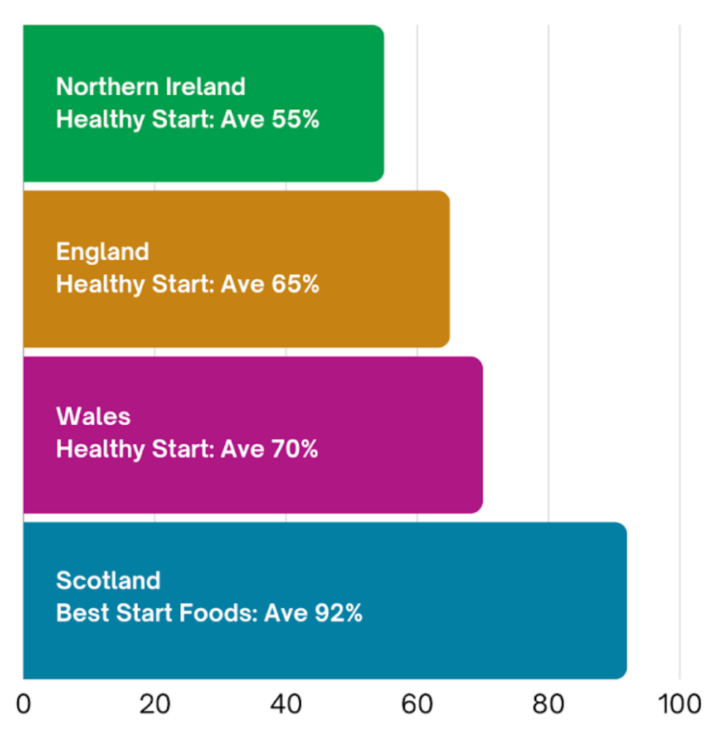What can England learn from Scotland’s devolved benefits policies?

The new Labour government has placed English regional devolution front and centre of its first few weeks in office, with greater decision making and control being promised to ‘devolution deserts’.
The power to change benefit policy at the regional level in England may seem unattainable right now, but devolution in Scotland didn’t begin with welfare policy. Since the Scotland Act 2016, and the establishment of Social Security Scotland in 2018, the devolution evolution in Scotland now encompasses a raft of changes such as the Scottish Child Payment, the Young Carer Grant, Job Start Payments, and Adult Disability Payments.
And there is more to come, such as the rollout of Pension Age Disability Payments starting next month, replacing Attendance Allowance for older people.
As we gathered in Glasgow for the 2024 IRRV Scotland conference this month, we look at devolved social security in Scotland and ask what England can learn from Scotland’s innovations.
Healthy Start Campaign is ten times more effective than doing nothing
Child poverty rates in Scotland hover at around 24%, meaning 1 in 4 children are living in poverty in Scotland. In England, this rises to 1 in 3 children with a poverty rate of 31% (JRF, 2024). Much of this difference is attributed to the Scottish Child Payment, a weekly £26.70 per child paid up to the age of 16 for families claiming means tested benefits like Universal Credit.
Alongside the wider success of the Five Family Payments, which include the Scottish Child Payment as well as three Best Start Grants and Best Start Foods, the Scottish equivalent of the Healthy Start scheme, support for young families in Scotland, is having a clear impact.

Take up rates for Scotland’s Healthy Start equivalent are the best in the UK
This impact is stark when we compare Best Start Food take up rates in Scotland with Healthy Start take up across the rest of the UK.
In Scotland take up rates of 92% demonstrate what can be achieved through effective communications, proactive outreach and sleek application processes.
Meanwhile, in the rest of the UK, take up rates for Healthy Start are lagging. While England’s average take up rate is 65%, rates vary from 50% to 78% across the English local authority areas, a key nod to how impactful differences in approaches can be.
In the first half of 2024, a handful of leading local authorities used administrative data to identify and engage with pregnant people and new parents to encourage take up of the Healthy Start scheme, with demonstrable success.
Funded by the Greater London Authority, we worked with London boroughs to increase Healthy Start takeup using proactive direct communication with families identified using benefit admin data.
This Low Income Family Tracker delivered campaign grew the take up rate for Health Start by an average of 3.3% in each participating borough, compared to a 0.35% increase in other boroughs over the same period.
Full results from this pilot campaign across London, and the agreed next steps, will be shared next week. Subscribe to this blog to be automatically updated.
Scotland’s Best Start Foods is one of many examples of how a proactive approach can yield great results for supported families as well as policymakers.
Clearly the Healthy Start scheme has a long way to go before it reaches Scotland’s enviable take up rates, but progress and improvement is possible. Higher take up rates for any benefit mean help is being delivered where it is needed most, and the work we’ve done with London authorities demonstrates a successful approach that can then be replicated with other benefits.
In Scotland, evaluation of the Best Start Food scheme highlights ease of application method, reductions in stigma, and a concerted effort at each touch point with eligible families to promote and support applications. Taking measures even further, joint applications for multiple grants and proactive awards for linked grants without further application is also leading to improved outcomes for residents.
England can learn a lot from Scotland’s approach.
More progressive and proactive approaches to benefit awards and the clear wins with take up are lessons for future regional devolution deals. And who knows, perhaps a few years down the line we will be talking about regional welfare schemes based on local population needs, not national averages.
In the meantime, English regions may not have the power to change national welfare policy, but they do have the power to improve take up within the existing system while they wait for it.
£23 billion of support is unclaimed each year
Our analysis shows that at least £23 billion of support, including benefits and social tariffs, is unclaimed across the country each year. To learn how much is unclaimed in your area and best practices from other local authorities who have run highly successful benefit take up campaigns please contact hello@policyinpractice.co.uk or book a call with the team to discuss.




